Your predecessors were brought up in traditions which kept them aloof from the common run of the people. It will be your bounden duty to treat the common man as your own.”
The words of India’s first home minister and the father of modern-day Indian Administrative Service (IAS) institution, Sardar Vallabhai Patel, in his address on 21 April 1947 laid down the principles of good governance.
This in no way implies that our bureaucracy is free of corruption, partiality, inefficiency and apathy. These flaws, more often than not shake people’s faith in the babus who are supposed to be the best and brightest minds of India.
We, at The Better India, highlight the hopeful side of the same coin, which exists in equal measure but shines a lot less.
Under our category of Civil Servants, you will discover moving, inspiring and courageous stories of IAS officers who have gone beyond the call of duty to provide governance and support to people.
Our criteria for selecting them is simple – their work created a vast positive impact, for which they went above and beyond the simple fulfilling of obligations or implementation of schemes. These officers proved to be innovative and flexible changemakers in the time frame and the posting they held when we considered them.
Their efforts have stirred large scale impact in various fields — from education, healthcare to sanitation, they’ve done it all.
1) Durga Shakti Nagpal: Took On Noida’s Illegal Sand Mafia

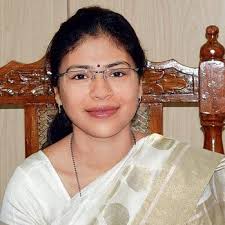
In 2013, Durga Shakti Nagpal, the then Sub-Divisional Magistrate in Gautam Buddh Nagar in Greater Noida, was addressing illegal minings. The next thing she knew, she was watching her face splashed across all the television channels.
After finding out about how illegal sand mining led to rampant soil erosion and landslides, the 2010-batch IAS officer conducted several midnight raids. The mafia smuggled construction sand that not only reduced groundwater levels and made the area prone to floods but also caused an irreparable loss to the state treasury.
Durga managed to put over 90 illegal miners behind bars and also recovered around Rs 150 crore of royalty within two weeks.
From sealing borders, making arrests to ceasing vehicles, Durga’s multi-pronged approach became the talk of the town.
“We saw trucks and caught hold of the drivers. Through them, I reached the bigwigs. During the day, I approached the public to call me whenever they spotted or suspected any illegal activities. Many overcame their fears and came forward with genuine leads,” she says.
However, she was soon transferred to a different department.
“When you do something that you are so strongly convinced about and stand firm on principles, you might find yourself lonely, but the citizen’s support was encouraging enough for me. Plus, the National Green Tribunal issued directions and advisories against sand mining across the country. So that was a win-win,” says Durga, who is currently the Deputy Secretary in the Central Department of Commerce.
Read the entire story here.
2) Bhupesh Chaudhary: Helped Increase Farmers’ Income By 14 Times

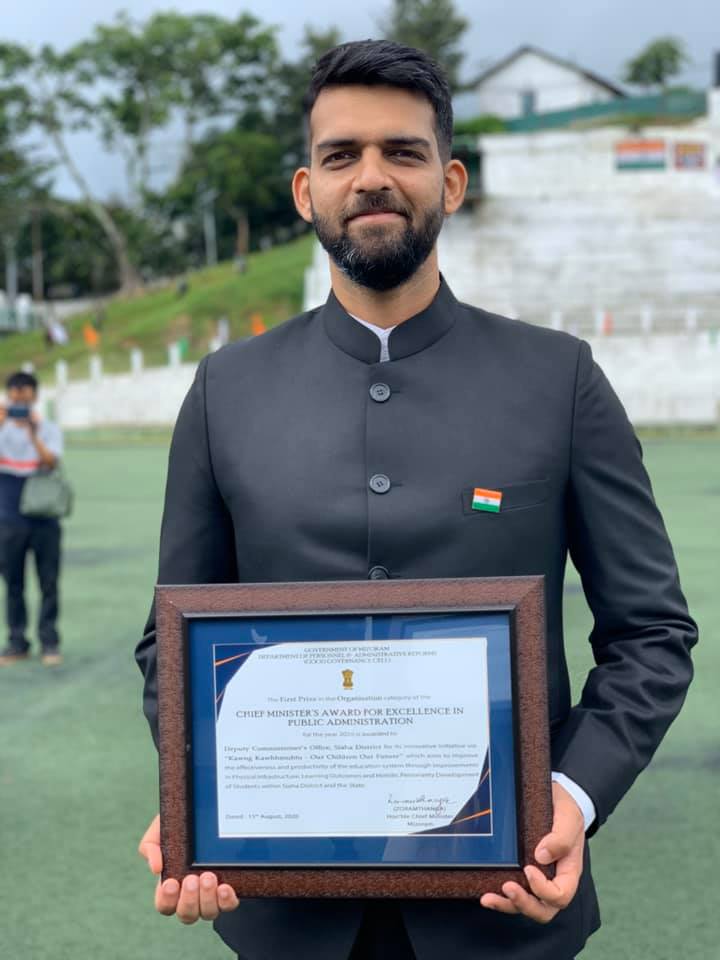
The plight of chilli farmers in Siaha, the southernmost district of Mizoram was no different than the other farmers of India. Plagued by issues like unjust market rates and lack of storage facilities, these farmers were selling one of the finest chilli varieties — Bird’s Eye, at whatever rate they could.
This was until Bhupesh Chaudhary, the former Deputy Commissioner (DC) of Siaha district stepped in. He was shocked to see that a variety that has been accorded the geographical indication (GI) tag was sold at such dirt cheap rates.
The 2014-batch IAS officer then used an array of government schemes like RKVY-Raaftar, MGNREGA and Mission for Integrated Development of Horticulture to build an infrastructure for storage and processing. He organised the farmers into self-help groups and formed a cooperative society to establish market linkages.
Fast forward two years, the farmers are now selling packaged chilli powder produce at Rs 700/800 per kg against the previous earlier rate of fresh chill at Rs 50-100 per kg.
Today, over 280 farmers in the district grow about 102,580 kgs of fresh chillies, resulting in about 3,200 kgs of dry chillies.
“With a solid infrastructure, we made sure they are not dependent on the administration anymore. Several government schemes can be used to improve farmers’ plight, but unfortunately, due to lack of awareness, it does not translate into reality. As an administrative officer, it is important to convert the schemes and provide meaningful solutions by going that extra mile,” Bhupesh tells The Better India.
Read the entire story here.
3) Anshul Gupta: Turns Crumbling Hospital Into Affordable & Green Health Centre

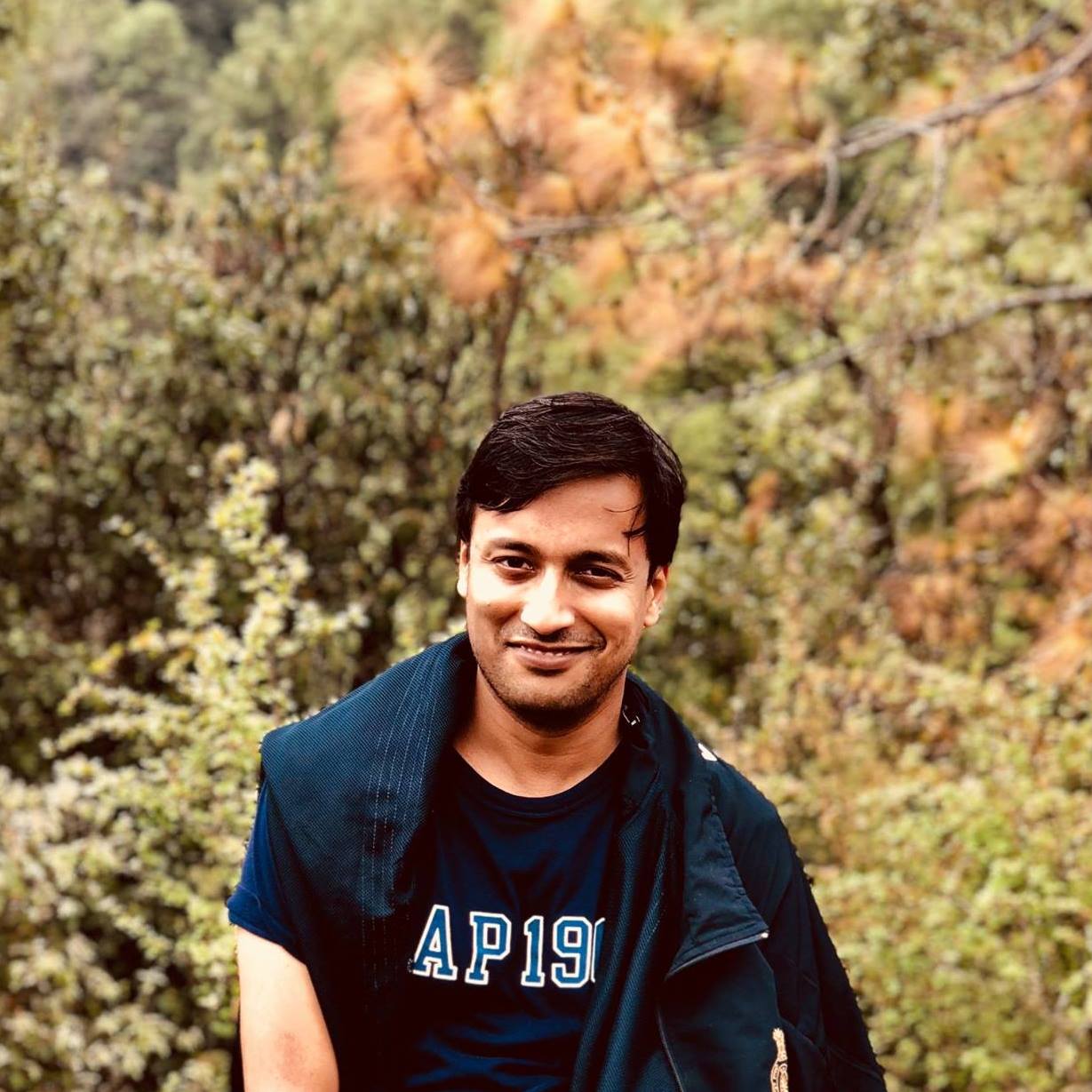
Way before the pandemic, IAS officer Anshul Gupta was silently transforming a crumbling hospital into an affordable healthcare centre.
When he took charge as the Sub Divisional Magistrate (SDM) of Indore’s Mhow cantonment in 2019, he learned of the different issues plaguing the Indian Red Cross Hospital (IRCH).
“There were several issues that needed immediate attention–right from understaffed nurses and doctors, irregular work timings, insufficient medical facilities and basic diagnostic services to rampant bribing. Open electric wires, an unpunctual staff, unclear employee roles were some other issues. Something as basic as changing bed sheets was overlooked,” he recalls.
He started with firing inefficient medical staff and followed it with a protocol for doctors and nurses to ensure patients weren’t turned away from treatment. Next, he established a computerised billing system to mitigate overcharging and corruption.
He roped CSR funding and individual donors to acquire medical equipment like vacuum suction machines, multiparameter, Cautery Machine, Babies Warmer, LED Phototherapy, Labour table, autoclave machine, Anaesthetist Workstation were purchased. And finally, solar panels were installed to save thousands of rupees on electricity.
“It took some time to educate and motivate everyone, but the face of the hospital has completely changed now. They have started ultrasound as well. The hospital is presently turned into a COVID-19 care facility, and I couldn’t have been more proud. The facilities and transparent management in the hospital are now helping people fight the coronavirus,” says Anshul, who has now been transferred to Umaria, Jabalpur, as the CEO of Zilla Panchayat.
4) Om Kasera: Helped 50,000 Students Reach Home Safely in Lockdown

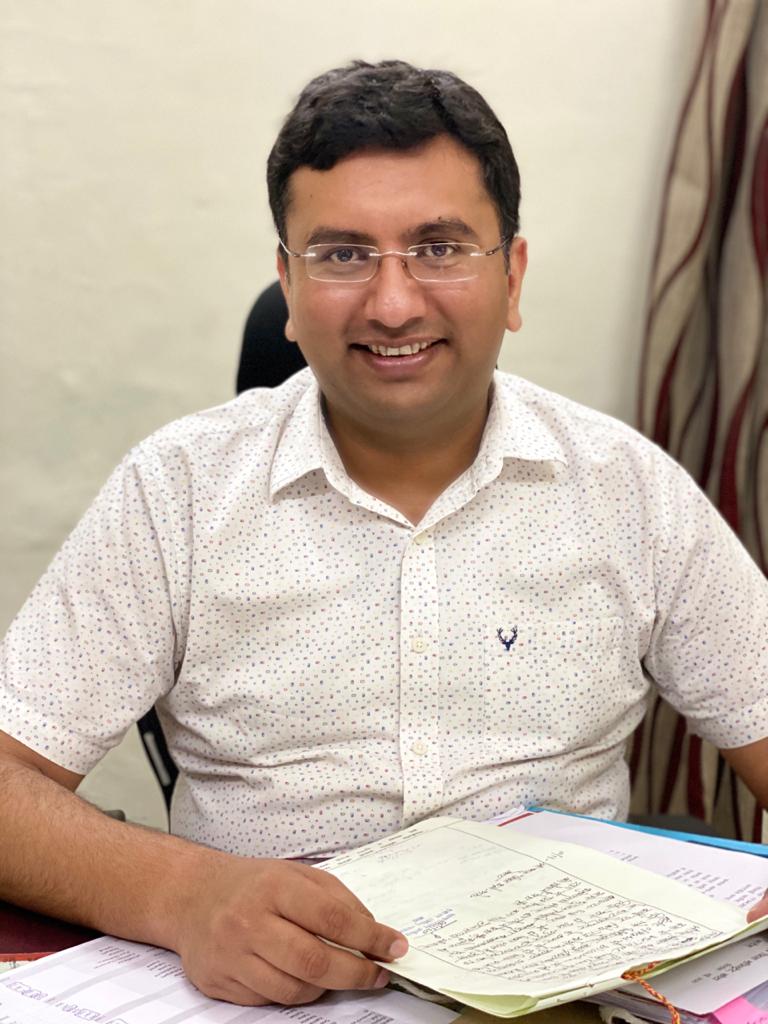
Infamously, known as the ‘suicide capital of India’, Kota had thousands of stranded students when the nationwide lockdown was imposed in March 2020.
Om Prakash Kasera, a 2012-batch IAS officer, currently posted as District Collector, was flooded with multiple calls daily from concerned parents and teachers of the NEET and JEE aspirants.
Om feared that the lockdown would only worsen the mental and emotional well-being of the students who otherwise battle issues like loneliness and anxiety while preparing for the competitive examinations.
After careful brainstorming, Om and his administration team prepared a detailed plan to evacuate 50,000 students and help them reach their homes safely across India.
“One of the biggest challenges we faced was to keep the morale of the students high. We found that many hostels and paying guest accommodations had shut down their kitchens and mess. The food supply for the students was severely affected,” says Om, who found alternative ways to supply food to the students. He also appointed psychologists to conduct sessions with students to talk them out of the fears they experienced.
Acting promptly, he tied up with the Central and various state governments to arrange the bus and railway facilities. The first batch of students left on 17 April and the last one was on 12 May.
His team of officers followed up with each student about their status till they reached home.
This staggering feat was no mean feat. To celebrate this, students trended #ThankyouDMKota on Twitter for a day in June.
Humbled by the gesture, Om says, “I put myself in their shoes and realised it’s a natural human tendency to be with the family in times of crisis. I only responded to my call of duty. It is for moments like these where one gets to serve the people that I entered this profession. I am happy I have these memories to look back on and cherish.”
Read the entire story here.
5) Harshika Singh: All-Women Schools For Dropout Girls & Unlettered Women

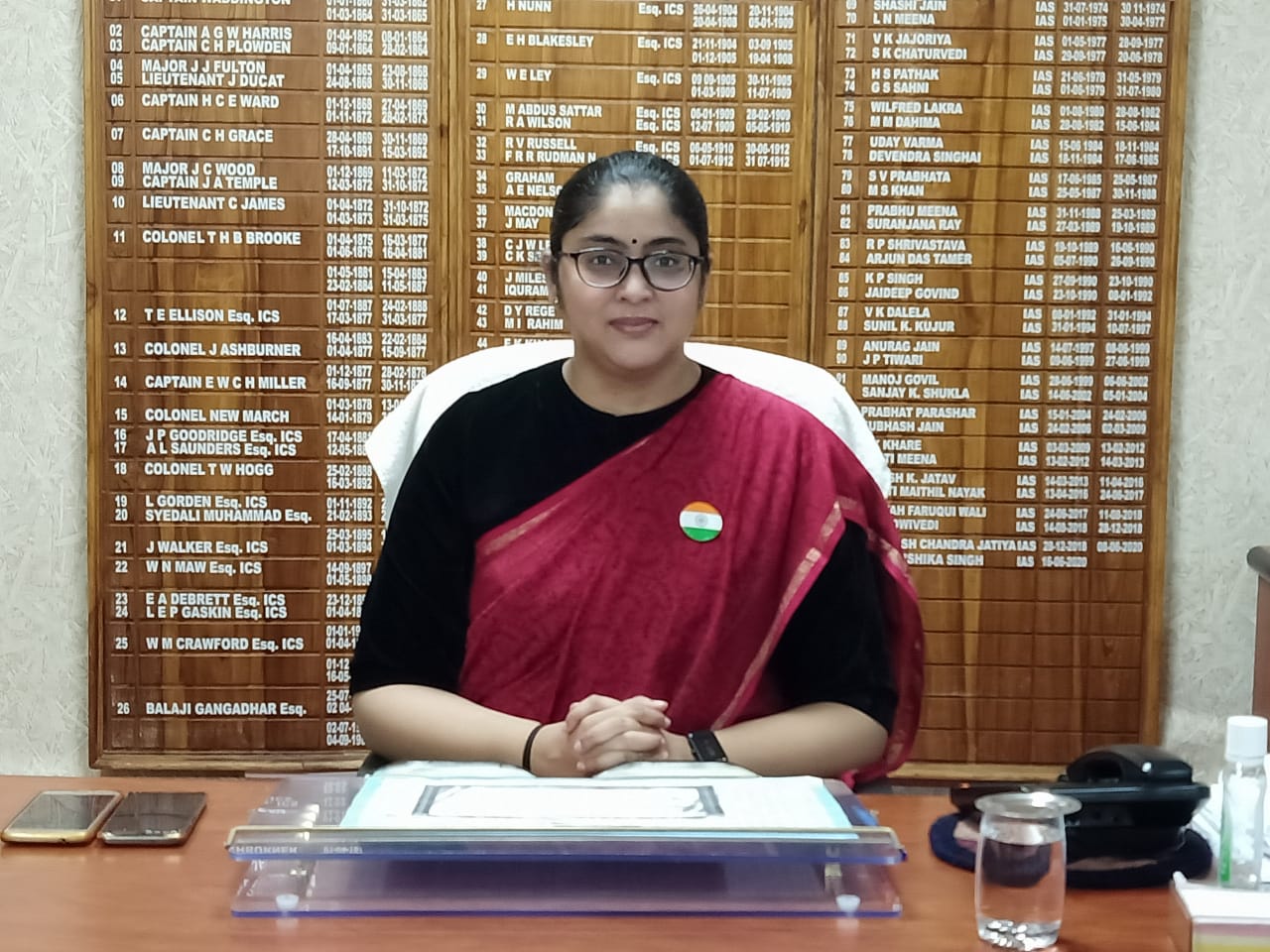
When Harshika Singh was posted in Madhya Pradesh’s Tikamgarh district as a Collector, she saw the skewed sex ratio and other gender-related issues like high maternal mortality rate, lack of hygiene and literacy among women.
In fact, some of the Gram Panchayats (GPs) had positive-negative sex ratios — households that gave birth to six or seven daughters with a desire to have a son.
With more research on the history and culture of the district, she found illiteracy among women was one of the fundamental root causes. During her research, she also learnt teenage girls dropped out of schools.
The 2012-batch IAS officer pledged to bring about change by starting all women-schools across 35 Gram Panchayats. She appointed local women as teachers to mobilise older women and girl drop-outs. Harshika set up an elementary academic curriculum that focuses on lessons like writing names, learning how to sign, primary maths and general awareness on hygiene and sanitation.
Two months into the programme, there was an average of 20-30 women per school who religiously attend the one-hour classes three to four days a week.
The panchayat gave their spare room for the classes, officers and citizens donated books and salaries of the teachers came from the panchayat funds.
Recording a positive outcome in Tikamgarh, Harshika carries forward the initiative to her newly posted district, Mandla.
“We have established 100 such schools, and there are 1,700 women taking classes for 7,000 students across the tribal district. There is certainly a desire for education among rural women, all they need is an opportunity,” says a proud Harshika.
She adds, “Most of these native issues are overlooked due to various reasons. However, when an IAS officer takes a special interest and addresses them, it restores people’s faith in governance and motivates them to shed their deep-rooted inhibitions. It is always heartwarming for me to see fathers and husbands, encouraging their loved ones to attend the school. And this is development.”
Read the entire story here.
6) Ramesh Gholap: Rescued 35 Children From Forced Labour

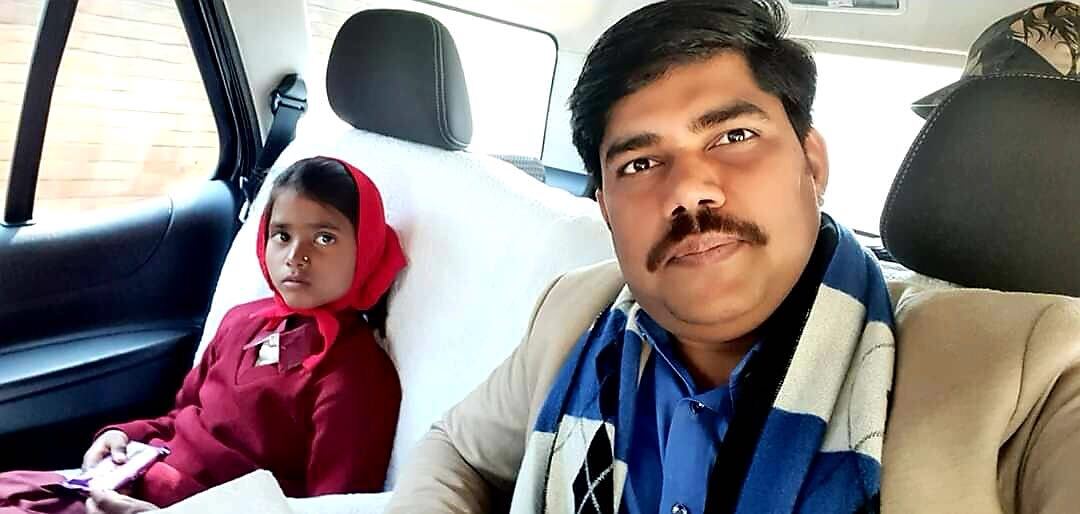
As the Sub Divisional Manager of Bermo in Bokaro district of Jharkhand, Ramesh Gholap rescued a 9-year-old boy named Sumit in 2015. And since then he has enrolled more than 35 children in schools across different districts.
Ramesh is presently posted as the Deputy Commissioner of Koderma, where he has enrolled five children in government-run residential schools. Not just that, he also helped the children get necessary documents like Aadhar and ration cards to avail government benefits. He has also assigned himself as the guardian for an orphaned 11-year-old Sapna Kumari.
“At the school, Sapna will be given a place to stay, food, and education. Apart from that, I also enrolled her into the Integrated Child development and security scheme through which she will receive Rs 2000 every month. A few other officers and I pitched in money to buy her a bag, stationery, shoes, and uniform,” says Ramesh.
During his tenure, Ramesh noticed that many people were unaware of the government benefits due to which they are often forced to take paths they don’t want to.
Thus, Ramesh and his team of officers have started organising ‘Sarkar Aapke Dwar’ (Government at your doorstep). He says, “We attend panchayat meetings across the district at the end of which we tell people about the schemes and help them with the application. Having experienced poverty first hand, I know how difficult it is to survive daily. I don’t want children going through what I went through.”
Read the entire story here.
7) Devansh Yadav: Raised 4.5 Lakhs For Children’s Education

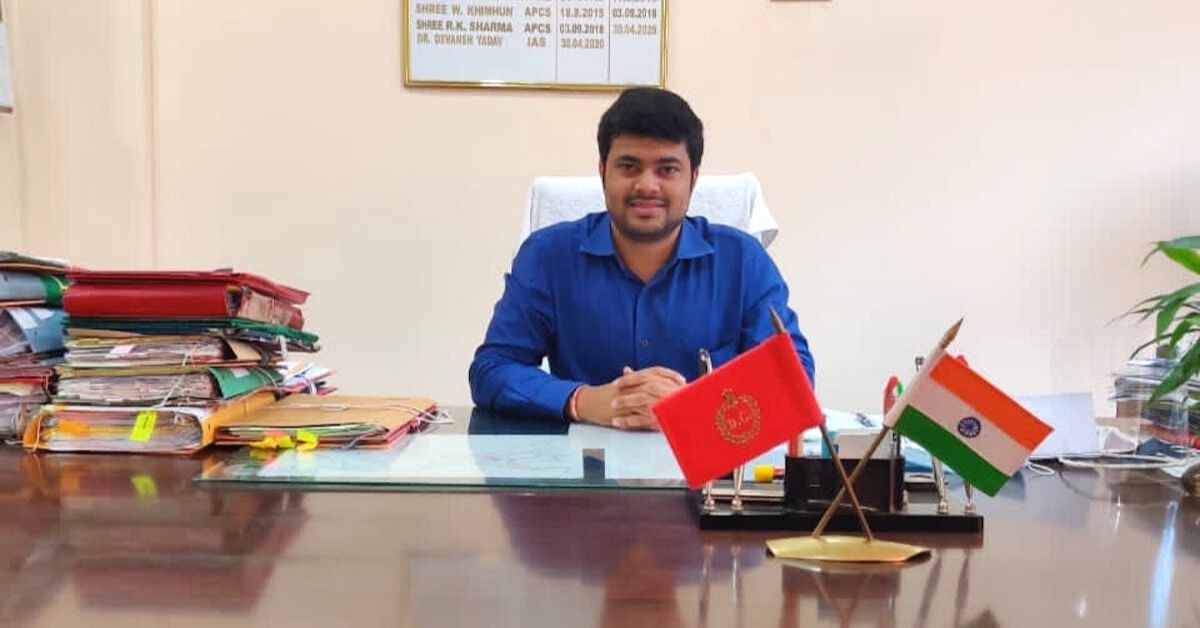
Thanks to a heartwarming and generous gesture by Deputy Commissioner of Changlang, Arunachal Pradesh, Devansh Yadav, seven students from marginal families are getting an opportunity to study at Delhi University.
One of these seven students, Longsam Sapong, didn’t have big plans for further studies despite scoring 89.4% in his Class 12 board exams. His family’s weak financial status and lack of proper support made him curtail his dreams.
Two of the girls are district toppers, too. Senthung Yangchang scored 89.2%, and Leecha Haisa scored 80.6% in their Class 12 board exams. With help from Devansh, all three students have been able to secure admissions in Delhi University.
Admiring the students’ determination to study, Devansh has decided to turn this into an annual event, and already a couple of local MLAs have promised to donate funds from their accounts every year. The amount is presently kept with the nodal officer and will be transferred to students’ accounts once the academic year starts.
“Initially, the plan was to sponsor three to five students. But seeing the overwhelming donations from across India, we increased the number to seven. We collected a total of Rs 45,00,000, which will be used to pay college fees and other expenses. One donor has committed to sponsoring one student through graduation. Meanwhile, with the help of NGOs we have procured accommodation for the students at subsidised rates,” says Devansh.
Read the entire story here.
8) Vikranth Raja: Restored 178 Water Bodies in Three Months

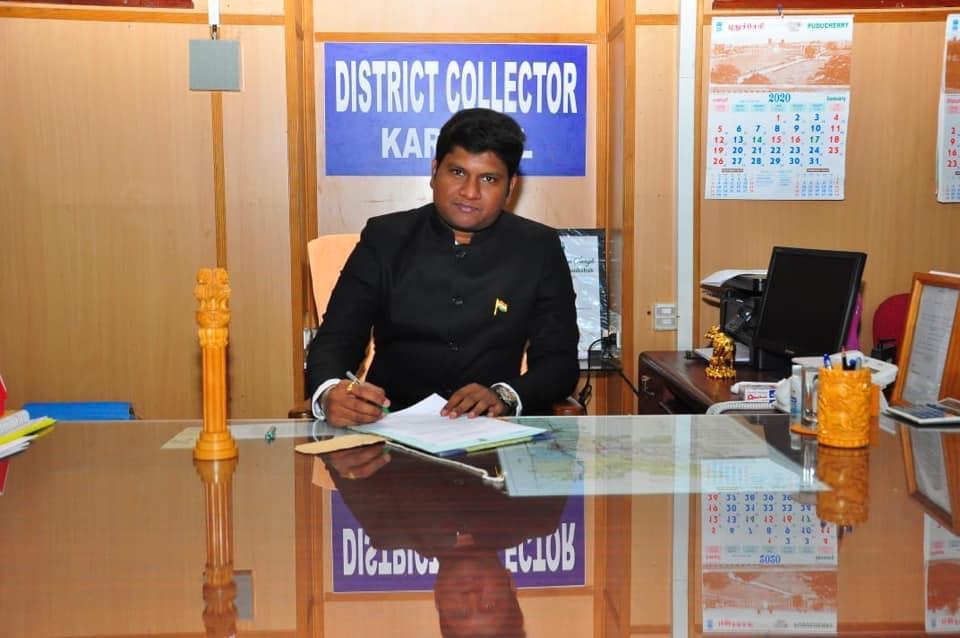
IAS officer Raja Vikranth worked hard to restore 178 water bodies in Puducherry’s Karaikal district within three months in 2019. But he never fathomed that a piece of history that once fascinated him in school, would have to be revived in the region he was posted in as a District Collector (DC).
He used the ancient 9th Century Chola Dynasty method, where the engineers under the Chola rulers created an excellent network of channels and bunds that conserved rainwater, thus ensuring abundant water for the subjects.
He roped in locals, educational institutions, companies and even temples to execute the project. This proved to be a huge booster for Karaikal and water reservoirs, which are still taken care of by various stakeholders.
“50 ponds are being used to practice aquaculture by the fisheries department, and some are being used to water agricultural fields. Meanwhile, the remaining bodies are looked after by the Public Works Department and locals. The best impact has been an increase in cotton cultivation across 100 acres due to the availability of water. This shows people are using water as an asset for their livelihoods. Many generic problems have people-centric and holistic solutions in history,” says Vikranth, who is now the Secretary to Chief Minister Velu Narayanasamy.
Read the entire story here.
9) Aditya Ranjan: Transforming 650 Anganwadi Centres

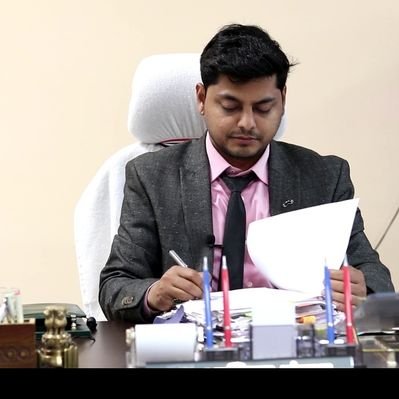
Crumbling buildings, dilapidated classrooms, disoriented kids and absentee teachers — this is the unfortunate scenario of many Anganwadis across the country. But when newly appointed District Development Officer Aditya Ranjan in Chaibasa, Jharkhand saw the deplorable conditions of a few Anganwadis, he embarked on a mission to change this.
In 2018, he chalked out a plan to use a sizable portion of his salary to refurbish the Gitilipi Anganwadi centre with paint, plaster and functional toilets. Not stopping at that, he actively designed a new curriculum and trained the teaching staff accordingly.
In the next two years, he replicated the Gitilipi model in over 650 Anganwadi centres in West Singhbhum district. He has also launched commendable initiatives like a mobile science laboratory, digital literacy workshops and an increased number of healthcare centres.
“With the help of the Teacher Training Institute, we had trained Sahayakis (staff). They are now equipped enough to run the show on their own. They judiciously use the Rs 5,000 allotted to centre every month,” he says.
Through the trained workers, the students are taught emotional and adaptive life skills, aside from the syllabus. Their daily routine now follows a strict balance between learning and fun – starting with the morning assembly and comprising exciting extra-curricular activities.
Aditya shares that his inspiration to initiate such a large-scale project is a local widow who was using her monthly pension to run an Anganwadi centre. “She felt children’s talent and keen interest to study was going to waste due to lack of funds. I thought, if a responsible citizen like her was doing this so selflessly, being in the governance this is the least we could do,” he adds.
Read the entire story here.
10) Divya Devarajan: Improved Literacy, Generated Employment Among Tribals


How many times have you seen or heard villagers naming an entire village after an Indian Administrative Service officer?
Divya Devarajan, a 2010-batch IAS officer, was recently honoured by the natives of Adilabad, Telangana who named a village ‘Divyagud’ to appreciate all the work she had done in their conflict-ridden region in 2017.
From appointing special tribal coordinators, language translators in government hospitals, making the administrative office more accessible, to learning the language herself, Divya addressed basic civic issues with precision. However, it was her sincere effort to learn the Gondi language within three months that cemented her place in every villager’s heart.
She became one of their own during her tenure and would often go on field trips to assess issues, listen to the people and provide solutions. Zeroing in on the basic problems that the region faced – high rates of illiteracy, unemployment, sanitation, irrigation health and floods, among others — she also worked incessantly to resolve the conflicts in the area.
She also educated people about their constitutional rights and to that effect she appointed PESA (The Provisions of the Panchayats (Extension to Scheduled Areas Act, 1996) coordinators at Gram Panchayat level to assist people in legal matters. Her proactive approach in learning about their traditions, festivals and culture left everyone impressed. “I appointed a special officer for the welfare of particularly vulnerable tribal groups to address their issues with more focus and better efficacy. It was important to understand their issues from their perspective, rather than to rush in with changes that I thought were necessary,” she says.

